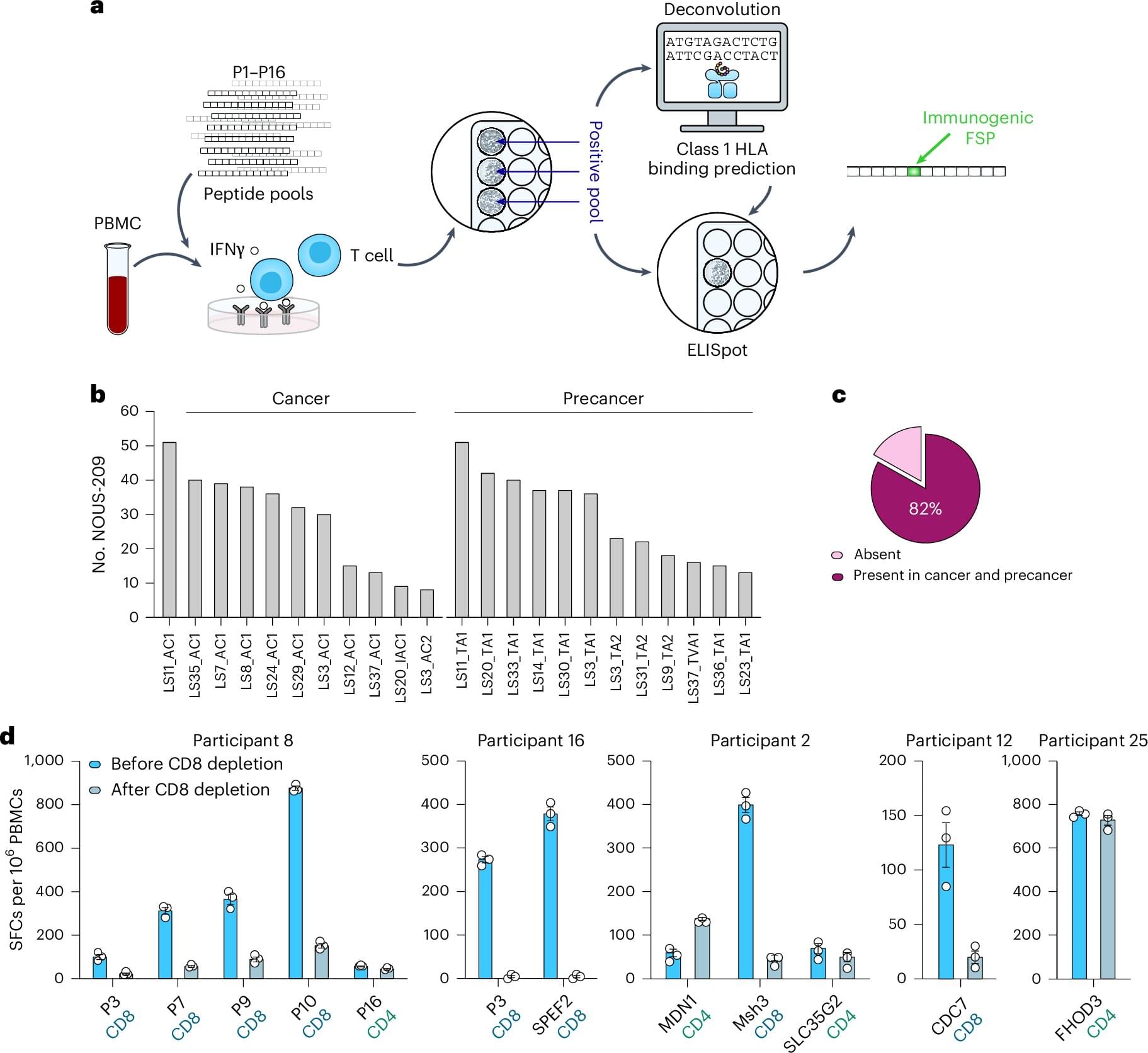The investigational cancer vaccine, NOUS-209, was found to safely stimulate the immune system to target precancerous and cancerous cells in individuals with Lynch Syndrome (LS), according to a study from researchers at The University of Texas MD Anderson Cancer Center.
The results of a Phase Ib/II clinical trial, published today in Nature Medicine, provide early evidence that immune-based approaches, such as NOUS-209, may be able to intercept cancer before it develops, offering a potential new avenue for preventive care for high-risk individuals.
“Current management strategies for Lynch Syndrome patients—frequent screenings or elective preventive surgery—are life-changing interventions that help prevent cancer development but can significantly affect quality of life,” said principal investigator Eduardo Vilar-Sanchez, M.D., Ph.D., chair ad interim of Clinical Cancer Prevention. “By teaching the immune system to recognize and attack abnormal cells, this therapy offers a promising new approach to this patient population, who face a significantly higher risk of colorectal, endometrial, urothelial and other cancers.”







